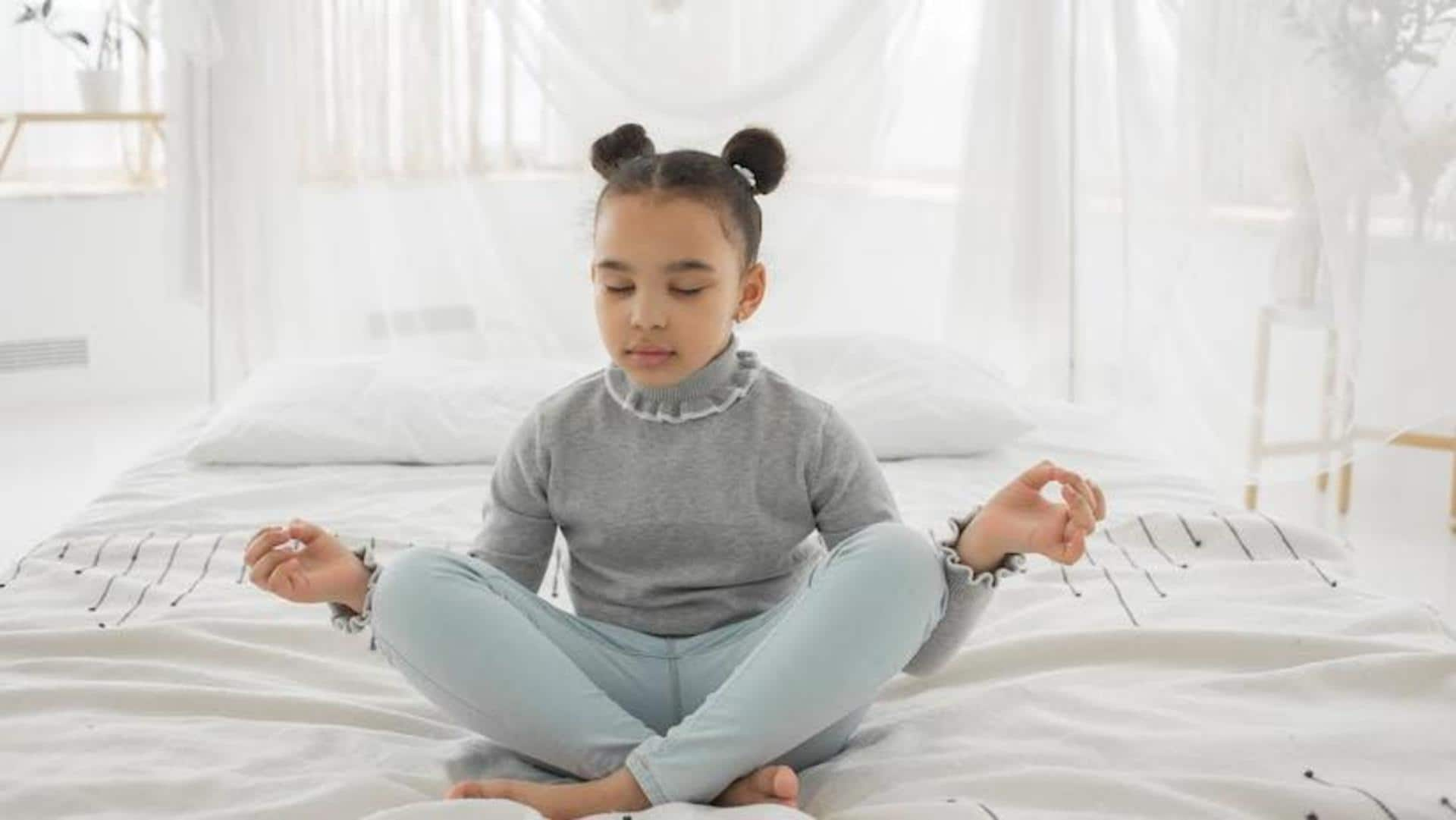
Why parents should introduce meditation during formative years of children
What's the story
Meditation is steadily gaining recognition as a lifestyle practice for its multifaceted benefits.
Studies have shown that meditation can even be highly beneficial for children during their early years of development.
Raman Mittal, co-founder & CPO of Idanim, a meditation app for inner peace and well-being, shared with NewsBytes five reasons why parents should introduce meditation during the formative years of kids.
Reason 1
Develops self-awareness
According to Mittal, during the early years of childhood, kids experience emotional and cognitive growth.
"Teaching meditation to children can significantly contribute to developing their self-awareness. By practicing meditation, they can learn to observe their thoughts, emotions, and bodily sensations without any bias or criticism," he shares.
"Meditation can also help them cope with emotional challenges such as anxiety and rage," he adds.
Reason 2
Boosts focus and attention
"Meditation provides a potent tool to enhance focus and attention. Regular practice can teach children how to cultivate an undivided focus by training their minds to be in the present moment," says Mittal.
The co-founder further shares that children who experience attention-related issues like ADHD can immensely benefit from meditation, making it a great skill that will benefit them in the long run.
Reason 3
Reduces stress and anxiety
Academic expectations, social interactions, and various other challenges can weigh children's minds all the time.
"Children who practice meditation regularly may experience a decrease in symptoms related to stress, such as headaches, stomachaches, and difficulty sleeping," reveals Mittal.
It can also benefit them in finding peace in chaotic situations and train them to maintain composure in difficult situations.
Reason 4
Nurtures the ability to manage emotions
"Meditation can be a helpful tool for this, as it teaches children to recognize and accept their emotions without letting them take over their mind," shares the meditation expert.
Regular practice can teach children how to navigate their feelings and responses to various situations more constructively and positively.
It can empower them to recognize and understand their emotions, leading to healthier coping mechanisms.
Reason 5
Fosters understanding and empathy
"As our world becomes more interconnected, it is vital to teach children how to be compassionate and empathetic. Meditation is an effective way to cultivate these crucial qualities by helping children connect with their inner selves," states Mittal.
According to him, this empathy encourages them to be kind and compassionate towards others, facilitating more socially adept and respectful interactions.